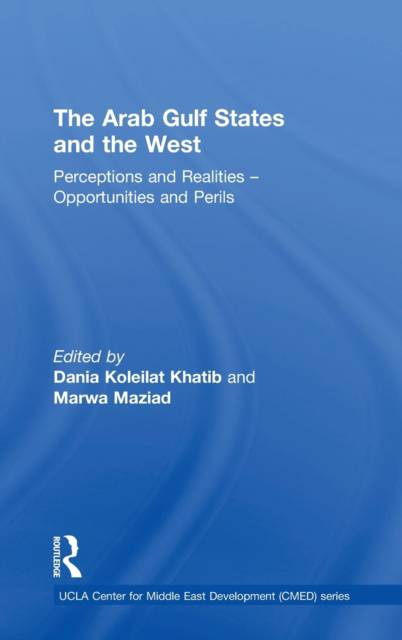
- Retrait gratuit dans votre magasin Club
- 7.000.000 titres dans notre catalogue
- Payer en toute sécurité
- Toujours un magasin près de chez vous
- Retrait gratuit dans votre magasin Club
- 7.000.0000 titres dans notre catalogue
- Payer en toute sécurité
- Toujours un magasin près de chez vous
The Arab Gulf States and the West
Perceptions and Realities - Opportunities and Perils
Description
This book examines the changing image of the Arab Gulf States in the West. It addresses the question of perception in international relations and how the Arab States of the Gulf have pursued various endeavors to project themselves into Western imagination.
The book chapters generate ideas on how perceptions came about and ways to improve cultural and political realities on the ground in the Arab Gulf States. Thus, it paves the way for a new area of research in the field of Gulf Studies that extends beyond traditional international relations frameworks by weaving elements of intercultural communication into the mix. Recognizing, yet extending beyond, a traditionally realist framework, which has dominated the analysis of Arab Gulf States' foreign relations with western countries, this book tackles both the materialist and the symbolic in the efforts and initiatives launched by the Arab Gulf States. Some chapters maintain a social-scientific approach about the politics of the Arab Gulf States in the West from an international relations lens. Others employ theoretical frameworks that were founded on the notion of the "encounter," with anthropological lenses and concepts of intercultural communication. In addition to the value of this academic research agenda, as such, some of the chapters also touch upon the added importance of policy-oriented input.
As the Arab Gulf States actively engage with the West, the book would widely appeal to students and researchers of Gulf politics and international relations.
Spécifications
Parties prenantes
- Editeur:
Contenu
- Nombre de pages :
- 320
- Langue:
- Anglais
- Collection :
Caractéristiques
- EAN:
- 9781138585362
- Date de parution :
- 23-10-18
- Format:
- Livre relié
- Format numérique:
- Genaaid
- Dimensions :
- 157 mm x 239 mm
- Poids :
- 612 g

Les avis
Nous publions uniquement les avis qui respectent les conditions requises. Consultez nos conditions pour les avis.





